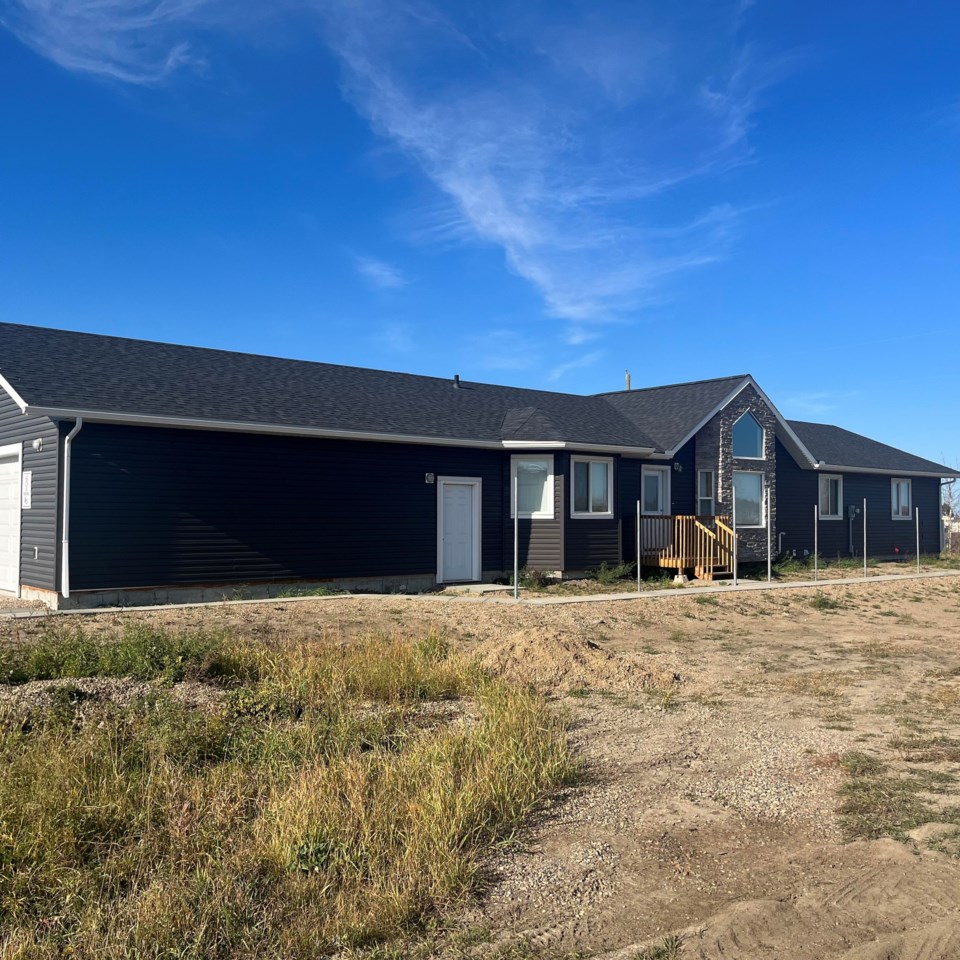COLD LAKE – Representatives from Kokum’s House acted as a delegation before MD of Bonnyville council, offering an update on the men’s transition house operations, and presenting a request for funding, and a letter of support for the Cold Lake Native Friendship Centre Kokum's House initiative.
The delegation included Agnes Gendron and Zane Thain from Kokum's House, and took place on Dec. 10. The presentation received praise from council, with an emphasis on procuring sustainable provincial funding.
Kokum’s House aims to expand in the future to serve more people and incorporate more wellness initiatives, such as mental health resources and cultural programming. Council accepted the presentation as information and will bring the request for funding to a future meeting for consideration. An exact amount of funds was not specified in the request.
Gendron thanked the MD of Bonnyville for its past support of the organization.
“Thank you very much for the $25,000 that we received from the municipality. It came in handy, but $25,000 doesn’t cover all the stuff we do at Kokum’s House,” explained Gendron.
She explained that costs such as utilities, $500 monthly grocery bills, and helping residents with accessing identification cards and work tickets have exhausted the non-profit's funding.
“With the $25,000, I was hoping it would last, but it sure didn’t with all the stuff we had to do to keep the house going,” said Gendron.
Thain, House Director for Kokum’s House, explained that Kokum’s House has become a men’s transition house that now accommodates 10 people.
“I went through recovery coach training with Alberta Recovery, and we are being called a recovery transition house now,” said Thain.
Vision and statistics
The presentation to council also included the vision of Kokum’s House, which, according to the organization, is “To be a beacon of healing, empowerment, and cultural reconnection, where men are holistically supported in overcoming addiction, achieving self-sufficiency, and building meaningful lives grounded in identity, community, and resilience.”
Thain reported that, since re-opening in November of 2023, Kokum’s House has seen 48 men, 19 of whom have received their work tickets and are currently living on their own and working.
According to the presentation, seven men relapsed and were asked to leave the house, four left after receiving Alberta Works support, six returned to their home cities independently, four transitioned to other recovery facilities, three moved in with a friend or family member, nine were provided transportation to their home towns through Indigenous Services, five were sent to rehab, and three required first aid or ambulance assistance.
There are currently five men living in the house.
“I’m straight from the street,” said Thain. “I’m a recovering addict myself and I’ve been clean for 10 years . . . We have a letter from the recovery nurse in Cold Lake giving us a good review, and then [we have] testimonials from the guys that have been in the house . . . When you’re in Cold Lake I encourage any of you guys to come and actually see what's going on.”
Thain explained that they take in locals as well as men from surrounding areas, including Indigenous and non-Indigenous individuals. Kokum’s house works with surrounding recovery houses to ensure the men are comfortable with their placement.
“It’s a three to one year stay at the house,” said Thain. “What I do is I try to get them motivated into working and working on themselves . . . We get them ticketed up, we get them thinking about jobs, we get them working on cars . . . I started a company where we do snow removal to get these guys working . . . They volunteer at the thrift store . . . They're learning to be accountable and responsible for their actions.”
Thain explained that helping the men through the hurdles they face on their path to recovery and independence can help mitigate a relapse. Thain explained that there are “gaps” in the system.
“Once they come out of rehab or off the street, they hear a lot of no’s. So, I take a lot of no’s away . . . If you're on Alberta Works, they require you to have a job letter to get tickets. That's just another no and an excuse to drink, so what I do is I send them to go get their tickets and then they're more employable,” said Thain.
Coun. Ben Fadeyiw inquired about the outcome of correspondence with provincial leaders such as the Minister of Mental Health and Addictions Dan Williams. Thain explained that the response from provincial leaders has been that potential funding is looking positive, but they cannot officially confirm anything.
Fadeyiw expressed the Kokum’s House resume speaks for itself, and that the provincial government needs to step up.
“We're going to keep pushing,” said Fadeyiw. “Because you need sustainable funding . . . You guys are a pillar to addiction recovery and you guys are very important. We need that funding from [the province].”
Coun. Don Slipchuk spoke about the positive track record Kokum’s House has and how it not only combats crime and addiction rates but gives people their lives back.
“That's the important part - that they get their lives back and to get to contribute to society and feel positive about themselves. So, thank you for what you're doing, and this is something I think is very beneficial for us as an MD,” said Slipchuk.



